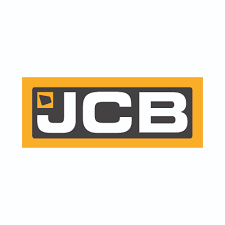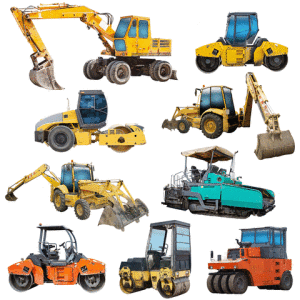Construction Equipment for Hire in Harare: A Comprehensive Guide
Are you looking for construction equipment for hire in Harare? Call 0774186042 for reliable and affordable services
Harare, Zimbabwe’s bustling capital, is experiencing significant growth in the construction sector. This surge in activity necessitates easy access to a wide range of construction equipment, leading to a thriving rental market. However, navigating this market can be challenging for both seasoned contractors and first-time builders. This comprehensive guide aims to clarify the landscape of construction equipment for hire in Harare, outlining the types of equipment available, factors to consider when choosing a rental provider, and best practices for a successful rental experience.
Types of Construction Equipment Available for Hire:
The Harare rental market offers a diverse range of equipment to cater to various construction needs. These can be broadly categorized as follows:
1. Earthmoving Equipment:
This category forms the backbone of many construction projects. Commonly available equipment includes:
Excavators: Used for digging trenches, foundations, and other earthworks. Sizes range from compact excavators ideal for confined spaces to larger models for large-scale projects. Different attachments, such as rippers and breakers, expand their versatility.
Bulldozers: Powerful machines used for moving large volumes of earth, leveling ground, and clearing sites. Their size and blade type vary depending on the project’s scale.
Backhoes: Versatile machines combining an excavator and a backhoe, suitable for digging, loading, and trenching operations.
Loaders (Wheel Loaders & Skid Steer Loaders): Used for loading and transporting materials like soil, gravel, and aggregates. Wheel loaders are suited for larger projects and smoother terrain, while skid steers offer maneuverability in tighter spaces.
Graders: Primarily used for grading and smoothing earth surfaces, creating level roads and foundations.
2. Lifting and Handling Equipment:
This is crucial for transporting materials and erecting structures. Popular options include:
Cranes (Mobile, Tower, & Crawler): Used for lifting heavy materials, such as steel beams, prefabricated components, and large machinery. The type of crane selected depends on the lifting capacity, reach, and site conditions.
Forklifts: Essential for moving pallets and other materials within construction sites. Different types are available, including electric, gas, and diesel-powered forklifts, each with varying lifting capacities and maneuverability.
Aerial Work Platforms (AWPs): These include scissor lifts and boom lifts, providing safe access to elevated areas for tasks such as painting, welding, and inspections.
3. Compaction Equipment:
Ensuring proper compaction of soil and other materials is vital for structural stability. Commonly rented equipment includes:
Rollers (Vibratory, Static, and Pneumatic): Used to compact soil, asphalt, and other materials to achieve the required density. The type of roller depends on the material being compacted and the desired compaction level.
Plate Compactors: Smaller, hand-guided machines used for compacting smaller areas or difficult-to-reach spots.
4. Concrete Equipment:
For all concrete-related tasks:
Concrete Mixers: Used for mixing concrete on-site, ranging from small portable mixers to larger truck-mounted mixers.
Pumps: Used to transport concrete efficiently to elevated areas or difficult-to-reach locations.
Concrete Vibrators: Used to remove air bubbles from freshly poured concrete, ensuring a strong and durable structure.
5. Other Equipment:
This category encompasses a wide range of other essential tools:
Generators: Provide power for equipment and lighting on-site.
Welding Machines: Used for joining metal components.
Power Tools: A vast range of drills, saws, and other power tools are available for hire.
Choosing a Construction Equipment Rental Provider in Harare:
Selecting the right rental provider is crucial for a successful project. Here are key factors to consider:
Reputation and Experience: Check reviews and testimonials to assess the provider’s reliability and customer service.
Equipment Condition and Maintenance: Moreover, ensure the equipment is well-maintained and in good working order. Ask about their maintenance schedules and safety protocols.
Insurance and Liability: Also, confirm that the rental agreement includes appropriate insurance coverage to protect against damage or accidents.
Rental Rates and Terms: Compare prices and terms from different providers, considering factors such as rental duration, delivery charges, and potential damage waivers.
Availability and Delivery: Ensure the desired equipment is available when needed and that the provider offers timely delivery and collection services.
Technical Support: A reputable provider should offer technical assistance and support if any issues arise during the rental period.
Best Practices for a Successful Rental Experience:
Plan Ahead: Book equipment well in advance, especially for larger projects or during peak seasons.
Inspect Equipment Carefully: Moreover, thoroughly inspect the equipment before accepting delivery and report any damage or defects immediately.
Understand the Rental Agreement: Also, read the rental agreement carefully before signing it, ensuring you understand all terms and conditions.
Proper Operation and Maintenance: Again, operate the equipment safely and according to the manufacturer’s instructions. Report any maintenance needs promptly.
Return Equipment on Time: Return the equipment in the same condition as received (excluding normal wear and tear) to avoid penalty charges.
Conclusion
The construction equipment rental market in Harare offers a wealth of options for contractors and builders. By carefully considering the factors outlined above and employing best practices, you can ensure a smooth and successful rental experience, contributing to the efficient completion of your construction project. Remember to always prioritize safety and adhere to all relevant regulations. Through thorough research and informed decision-making, you can find the right equipment and provider to meet your specific needs and contribute to Harare’s ongoing development.

